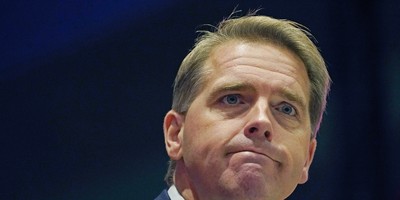After winning the Democratic nomination in an overwhelmingly Democratic city, Philadelphia mayoral candidate Jim Kenney kept pressing and campaigning ahead of the November 2015 elections. After the primary, the campaign focused almost exclusively on reducing poverty and expanding opportunity. Kenney pledged to help people succeed in every neighborhood of Philadelphia.
Jim Kenney declared at virtually every campaign stop that economic equality "should not be defined by zip code."
However, now that he is the mayor, Kenney is breaking his promise to the residents of Philadelphia. Mayor Jim Kenney is turning his back on the people who swept him into office. Earlier this month Mayor Kenney revealed that he will tax Philly’s residents based on their zip codes and neighborhoods.
Consider Mayor Kenney’s proposal to tax soda at 3-cents-per-ounce – that’s 60 cents for a 20 oz. soda. Who does the mayor think will be paying the tax? The answer is obvious – the people living in every zip code of Philadelphia. Not just the richest zip codes, but every zip code. Unless, of course, you can travel over to Jersey or the Philly suburbs to do your grocery shopping. So, in a very real way, the mayor is putting an extra tax burden on the city’s poorest residents and neighborhoods.
For the sake of argument, imagine a scenario: Compare two states or two cities — one with a giant tax on beverages and one without. Then do your own calculation and analysis. The results should be apparent. States and cities with lower tax burdens always have higher and faster growing economies and personal incomes than in states or cities with rising tax burdens. For evidence, look at 1990s New York City. Under Rudy Giuliani New Yorkers' tax burden was reduced by nearly 20% – its lowest level in generations. Giuliani cut taxes 23 times, and the whole city benefited, from Wall Street to Main Street and from lower Manhattan to the Bronx.
Recommended
Ironically, Kenney opposed a similar beverage tax when former Mayor Michael Nutter pushed for it in 2010 and 2011. Nutter's bids failed. Now Kenney hopes his massive soda tax will raise $400 million in five years to pay for universal pre-K and other government programs. But, what will happen to the pre-K program when the money doesn’t come in at the levels necessary to fund it? The Mayor is offering nothing but false hope.
Mayor Kenny has forgotten the First Rule of a “Tax it or not” Situation: when you tax something more you get less of it. Kenney also forgot the Second Rule of a “Tax it or not” Situation: If X and Y are two locations, and if taxes are higher in X and lower in Y, consumers—especially those with the economic means—will have a greater incentive to shop in Y. For the people of Philadelphia, “… I'm gonna take that ride across the river to the Jersey side” is going to mean more than just a cool lyric in a Bruce Springsteen song.
A tax on beverages is fundamentally unfair in two respects. First, such a tax is regressive, betraying—for Democrats particularly—the sacrosanct principle of tax fairness. Mayor Kenney’s “zip code” tax will disproportionately harm low-income individuals, as they spend a larger portion of their income on consumer goods like soda. Second, Kenney’s tax is arbitrary. There are many types of consumer goods that could have been Kenney’s target, but he is specifically going after sugary beverages. What product might be next? Good tax policy should be pro-growth, simple, and fair. Kenney’s proposed “zip code” tax on beverages is none of these things. A soda tax will hurt Philly’s families and businesses, and it won’t fund universal pre-K. Those who have means will buy their beverages elsewhere. And, such arbitrary taxation will have businesses and jobs fleeing Philadelphia faster than you can say “Jersey Girl.”
This unfair, unsustainable tax should be defeated. Let’s hope the Philadelphia City Council remembers the Third Rule of a “Tax it or not” Situation: businesses don’t pay taxes. They pass the cost of all taxation onto their customers in the prices of the goods and services they sell.
Kenney’s tax proposal is not a tax on Big Soda. It’s a tax on Philadelphia’s poorest neighborhoods and zip codes.
























Join the conversation as a VIP Member